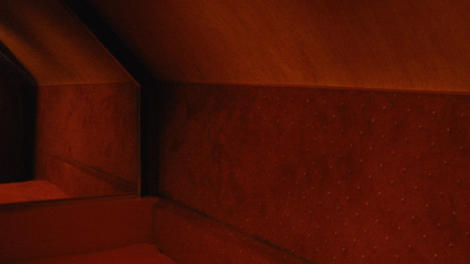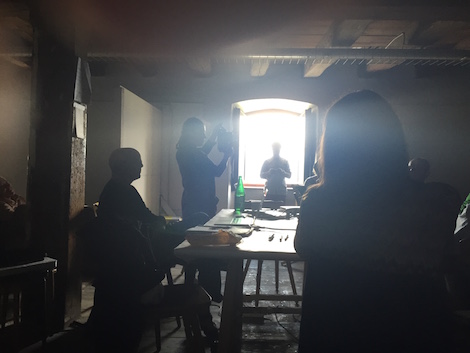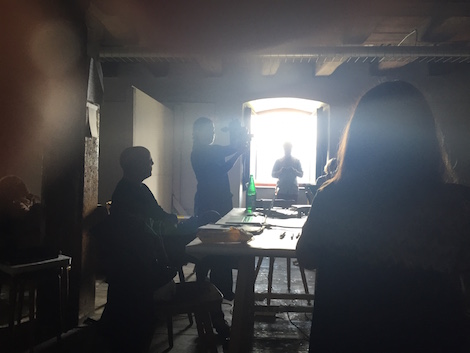| « 8 / 30 Breaking Patterns | 6 / 30 Meeting Bernhard Martin » |
7 / 30 Memories
Our memories are a product of the present, not of the past. Every day they re-construct themselves, with every experience that we make. Yet, we have the feeling that we have a past. We feel that we are a person, with a name, the same person that we have been from our first memory.
And yet, the truth of our memories is different from that of material reality. A place that seemed gigantic to us as children is a mere stone’s throw when we re-visit it later. The truth of our memories is also different from that of the media that we use record our lives with. A moment that means everything to us looks banal on a photo and a moment that has long been forgotten can become a photographic icon.

It would be far too easy to say: memories lie. They have their own truth. This truth is as much tied to the present moment as it is tied to the totality of all experiences, all sensations that we felt. The process of remembering is thus a continuous rendezvous: a seeing yourself as another, a careful re-visting.
This is the difference between recalling something, being reminded of something and remembering. Remembering is the process of exposing everything that you have ever felt to the sensations of the present moment. The etymology of ‘member’ points to that. To be a member means both to be a person, but also to be body. Remembering means the continuous process of becoming and remaining a person and becoming and remaining a body.
“I blocked my past away for a long time and then I found these photographs at the house of my step-grandmother and everything came back. I wanted to see the places from my earlier life and to see what is still there. It turned out they were very different from my own memory.”
This afternoon I visit Jayce Salloums’s class again. His assistant and co-teacher Antoinette Zwirchmayr presents her two latest films. The first one is called The pimp and his trophies. It is a documentary about her grandfather, who was a pimp in Salzburg when she was young. None of the associations that the title evokes are part of the film. Rather than a scandalous piece about the red light district of Salzburg, The pimp and his trophies is a subtle journey into the personal memories of Zwirchmayr.

“You do not see the actual places. I wanted to find images that fitted the images of my memory.”
At any point you can feel the careful construction of every image. The cinematography of the film is exceptionally controlled. It was shot on a 16mm analogue camera that highlights every texture, every reflection in the image.
A sequence of three hunters posing for a photo, strikes me particularly. Although the hunters are posing, you can see the small movements of their bodies in the act of posture. It is an image that is really hard to grasp, somewhere between a photo, a family film and a perfectly composed tableaux vivant.
These perfect memories are narrated by the voice of a professional actor. Also on the level of narration the process of re-creation and re-construction is highly present. She tells us later that she collaborated with a writer to edit the interviews that she had recorded with her grandfather.

The second film we see is called Josef – my fathers criminal record. Together with The pimp and his trophies and a film that Zwirchmayr is going to shoot in Brazil soon, it constitutes a family trilogy. Josef is a documentary about Zwirchmayr’s father, who robbed a bank in the age of 17 and never talked about it with his daughter.
“The whole process was difficult, asking these questions that were not allowed in my family. I knew that there had happened something in the past. But my father would always made this sound when I asked about it: psssst, somebody could hear it.”
Only after consulting the local newspaper archive she stumbles upon the story of a bank robbery her father was involved with. From the court records she learns a about a story that did not take place in the memories that her father shared with her. Again, we witness the process of a memory construction. We witness this process with all its idealizations and affinities for closure and its most beautiful unreliability.
After the films I wonder how many untold stories linger in my own family history. And how much they form and inform who I am: my remembering.

